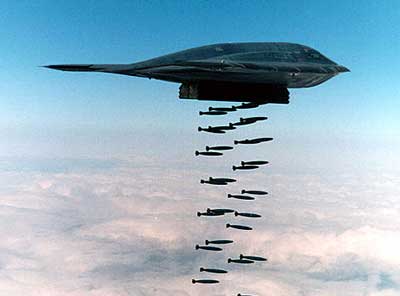- This information does not endorse any medicine as safe, effective, or approved for treating any patient or health condition
- cheapest Dalium order without prescription. You must talk with your health care provider for complete information about the risks and benefits of using rivastigmine patch
- buying online Accutane mail order without prescription
The Liberal Hawks' Neoconservative Allies
By S. Trifkovic (Chronicles)
Tuesday, 12 Apr 2011

The problem with President Barack Obama’s foreign policy is that he combines the broad ideological assumptions of liberal interventionists with a leadership style that allows people more doctrinaire than he to dominate the internal debate and decision-making process. Libya is the product of his disinclination to reject interventionism in principle, and his simultaneous inability to oppose the liberal hawks in practice.
The result is not pragmatism but muddle in the face of an unholy neoliberal-neoconservative alliance. There is precious little to choose between the scary triumvirate of Hillary Clinton, Susan Rice and Samantha Power on the “left,” and the AEI-Weekly Standard lumens on the “right.” When the Project for the New American Century proclaims that “American leadership is good both for America and for the world; and that such leadership requires military strength, diplomatic energy and commitment to moral principle,” it is using the same arguments with which the liberal hawks have prevailed in recent weeks over Secretary of Defense Robert Gates and National Security Advisor Tom Donilon. The end-result is yet another war with no clearly defined American interest, no exit strategy in sight, and weak guarantees against escalation.
The neolib-neocon alliance is unsurprising, considering the two camps’ shared Marxist origins. The neoconservatives’ roots are somewhat older of the two, in the anti-Stalinist far left of the World War II era. The liberal hawks are the heirs of 1968 and the Frankfurt School. They share the dualist outlook that translates in policy terms into geopolitical militarism and inverted socialist internationalism. Leonid Brezhnev’s Doctrine of Limited Sovereignty is different from that of liberal intervention only in the former’s more limited geographic scope.
Both the Clinton-Rice-Power clique and their neocon counterparts share an ideology of nationalist socialism and internationalist imperialism. The former would stress the importance of “multilateralism,” of course, but only as a propagandistic tool of providing their decisions with a veneer of quasilegality. They are not opposed in principle to a gradual transfer of sovereign prerogatives to regional groupings exemplified by the European Union. By contrast the neoconservative urge for uninhibited physical control of other lands and peoples bears resemblance to the New European Order of seven decades ago, or to the “Socialist Community” that succeeded it in Eastern Europe. The Kristols and Kagans are merely more frank on who should call the shots. Both are statists par excellence who believe that society can be and should be managed by the state, i.e. themselves. They are not “patriotic” in any conventional sense of the term and do not identify themselves with the real and historic America.
Both neolibs and neocons believe that their relentless pursuit of an American Empire overseas should not be bound by constitutional restraints. Hillary Clinton’s mentor Madeleine Albright declared, back in the ‘90s, “If we have to use force, it is because we are America. We are the indispensable nation. We stand tall. We see further into the future.” The neocon-dominated Bush administration then proclaimed, a decade ago, that such use of force is exempt from legislative control or oversight: “no statute can place any limits on the President’s determinations” because “these decisions, under our Constitution, are for the President alone to make.” The same spirit was triumphantly flaunted by Hillary Clinton when she told the House of Representatives that “the White House would forge ahead with military action in Libya even if Congress passed a resolution constraining the mission.”
In November 2008, eight weeks before Obama’s inauguration, I noted here that Mrs. Clinton’s appointment belied the President-elect’s rhetoric of “change.” There will be shifts, cultural and moral, at home, I wrote, but the established premises of an imperial presidency—which in world affairs translates into the quest for dominance and justification for interventionism—will not be challenged: “With Obama at the Oval Office and Hillary Clinton at State, America is less likely than ever to rediscover a world in which she will be secure and free, and will not threaten security and freedom of others. Those goals are inseparable from the preservation of our identity and our liberty at home.” The events of these past few weeks indicate that such fears were amply founded.
